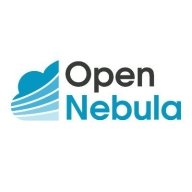

OpenNebula and AWS Trusted Advisor both compete in cloud infrastructure management, focusing on different strengths. OpenNebula may have the upper hand in environments that require a hybrid and multi-cloud approach due to its cost-effectiveness and ease of integration, while AWS Trusted Advisor excels in optimizing AWS-specific environments with its vast toolset.
Features: OpenNebula provides advanced multi-cloud support, seamless integration with multiple hypervisors, and an open-source framework allowing customization. AWS Trusted Advisor offers a wide range of tools for AWS best practices, real-time cost optimization feedback, and performance and security tools.
Ease of Deployment and Customer Service: OpenNebula offers straightforward deployment with community and commercial support, facilitating integration with existing systems. AWS Trusted Advisor, integrated into the AWS ecosystem, ensures easy deployment for AWS users and is complemented by Amazon's comprehensive support services.
Pricing and ROI: OpenNebula is known for low setup costs, providing significant ROI for hybrid cloud solutions. AWS Trusted Advisor, considered more expensive, justifies its cost with enhanced performance in AWS environments and improved resource utilization.
| Product | Market Share (%) |
|---|---|
| OpenNebula | 2.9% |
| AWS Trusted Advisor | 1.3% |
| Other | 95.8% |


| Company Size | Count |
|---|---|
| Small Business | 5 |
| Large Enterprise | 3 |
| Company Size | Count |
|---|---|
| Small Business | 7 |
| Midsize Enterprise | 6 |
| Large Enterprise | 3 |
AWS Trusted Advisor is your customized cloud expert! It helps you to observe best practices for the use of AWS by inspecting your AWS environment with an eye toward saving money, improving system performance and reliability, and closing security gaps.
OpenNebula provides the most simple but feature-rich and flexible solution for the comprehensive management of virtualized data centers to enable private, public and hybrid IaaS clouds. OpenNebula interoperability makes cloud an evolution by leveraging existing IT assets, protecting your investments, and avoiding vendor lock-in.
OpenNebula is a turnkey enterprise-ready solution that includes all the features needed to provide an on-premises (private) cloud offering, and to offer public cloud services.
We monitor all Cloud Management reviews to prevent fraudulent reviews and keep review quality high. We do not post reviews by company employees or direct competitors. We validate each review for authenticity via cross-reference with LinkedIn, and personal follow-up with the reviewer when necessary.